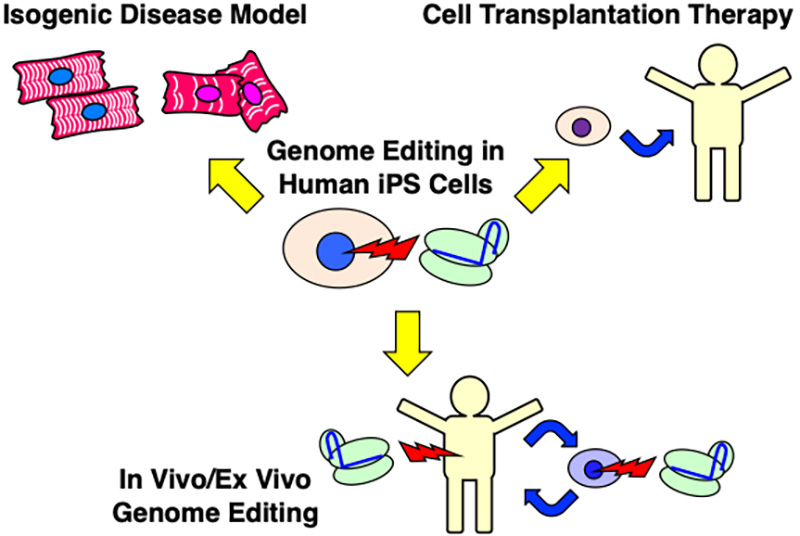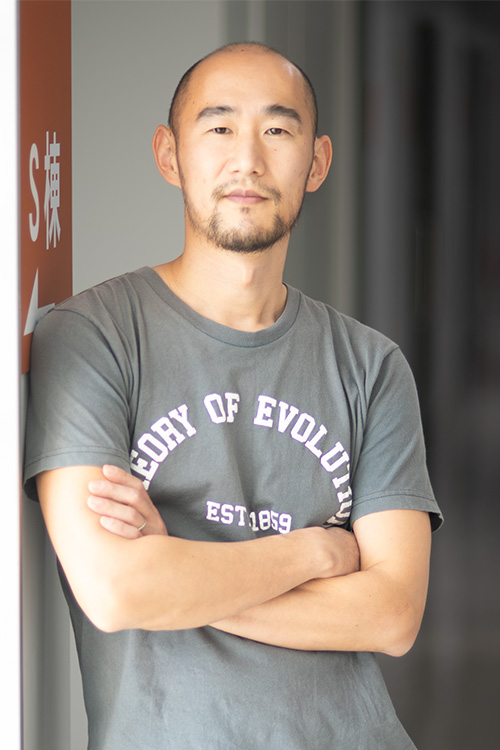
- HOME
- Regenerative Medicine Project
Regenerative Medicine Project
Development of therapies for genetic disorders by modifying iPS cells
Achievements in 2024
Genome editing induces a double-strand break (DSB) at the target site to activate two endogenous DNA repair pathways in the cell: homology-directed repair (HDR) and non-homologous end joining (NHEJ). HDR is based on DNA recombination between the genomic DNA and homologous template DNA, which facilitates precise genome editing when the exogenous donor DNA is provided to the cells. In contrast, NHEJ is a template-free, error-prone repair mechanism in which the broken ends of DNA are joined together, often with random insertions or deletions (indels).
We are interested in how the balance between HDR and NHEJ is determined, and how we can enhance HDR. We previously reported that CRISPR-Cas9 systems with improved proof-reading enhance HDR (Nucleic Acids Res, 2018). To enhance HDR more, we focused on proteins involved in DNA repair and found that the fusion of Cas9 and Histones suppresses NHEJ (PLoS One, 2024).
Furthermore, we have analyzed the frequencies and combinations of HDR and NHEJ induced in single cells. We previously investigated genome editing outcomes in single human cultured cell lines such as HEK293T cells (iScience, 2022). We expanded this study to explore genome editing outcomes in single human iPS cells. We found that identical genetic modifications, including insertions and deletions with different lengths, tend to be induced in both alleles of single iPS cells (bioRxiv, 2024.09.18.613641).

Publications
Papers in 2024
- Kato-Inui T, et al. (2024) “Fusion of histone variants to Cas9 suppresses non-homologous end joining.” PLoS One. 19:e0288578.
Key papers
- Kato-Inui T, et al. (2018) “Clustered regularly interspaced short palindromic repeats (CRISPR)/CRISPR-associated protein 9 with improved proof-reading enhances homology-directed repair.” Nucleic Acids Res. 46: 4677-4688.
- Takahashi G, et al. (2022) “Genome editing is induced in a binary manner in single human cells.” iScience. 25:105619.

